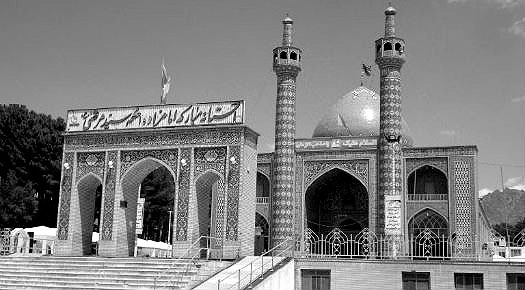
Muslims in Greece have been lobbying for an official mosque to be built in Athens for decades but increasing resistance from right wing groups has kept their dream from turning into a reality. Without a proper place of worship, the Muslim community in Athens continues to pray underground, both literally and figuratively.
On Eid al-Adha, as many as 250 Muslims attended their morning prayer in an underground mosque in Athens. Al Salam is a windowless basement that has a low ceiling and some shafts for ventilation. Even though the ground is laden with aesthetic carpets, there are several chips along the walls of the building. Most of those visiting the mosque for prayers were Greeks though there were some others from Pakistan, Turkey and Egypt as well.
“We have to pray in the garages,” said Naim El Ghandour, president of the Muslim Association of Greece. “This is not because of a lack of money but because they don’t give us the permission to have legal and open praying spaces.”
Al Salam is not only unofficial but also unrecognized by the Greek administration. Even though the government in Greece has approved the building of an official mosque several times over the last few years, Athens continues to remain the only capital in the European Union not to offer its Muslim residents an official place of worship. Ironically, Athens’ Muslim population is comprised of 200,000 to 300,000 people, a significant number considering the country’s total population of one million Muslims.
“They make it very hard to be a Muslim,” said Elena Martine, a French resident of Athens who converted to Islam. “When you go in Europe, you can always find a mosque, you can find a place of worship for any kind of religion. But the government doesn’t want the Muslim people here. It’s as simple as that. They don’t accept us.”
Even though efforts by lobbyists to build an official mosque in Athens took off decades ago, they managed to gain adequate support only in 2000, then again in 2006 and another time in 2011. However, delays and appeals by various bodies have kept it from being built, the most noticeable protest being the one carried out by prominent members of the Greek Church.
Since there is no separation of church and state in Greece and the majority population is comprised of Orthodox Christians, many Orthodox churches can be spotted across the Mediterranean country, all of which are publicly funded. However, the situation is very different for those who follow Islam. Naim Elghandour, chairman of the Muslim Association of Greece, says more than $1 million has been set aside for the construction of an official mosque in Athens and so he is convinced that the problem is not financial.
“The politicians here believe that building the mosque would be treasonous,” he said. “No one wants to bear this crime on their shoulders. They want someone else to take this hot potato off their hands so they delay it as long as they can.”
Had the issue been financial, Elghandour is convinced that Greece’s Muslim community would have come together to raise the necessary funds.
“Our goal is to have a Greek public mosque funded by the Greek state as the churches are to be equal with all Greeks,” he said.
In 2013, the longstanding debate over the mosque’s construction turned rather ugly when a few hundred people came together to protest against it. The protest was led by Golden Dawn Party of Greece, a body that even the local media refers to as a Neo-Nazi group. Members of Golden Dawn Party cited Greece’s deteriorating economic condition to oppose the construction of the mosque.
“There’s money to build a mosque but there’s no money for Greeks to live with dignity,” Golden Dawn said in response to the efforts to build the mosque last year.
Photo Credits: Wikimedia
